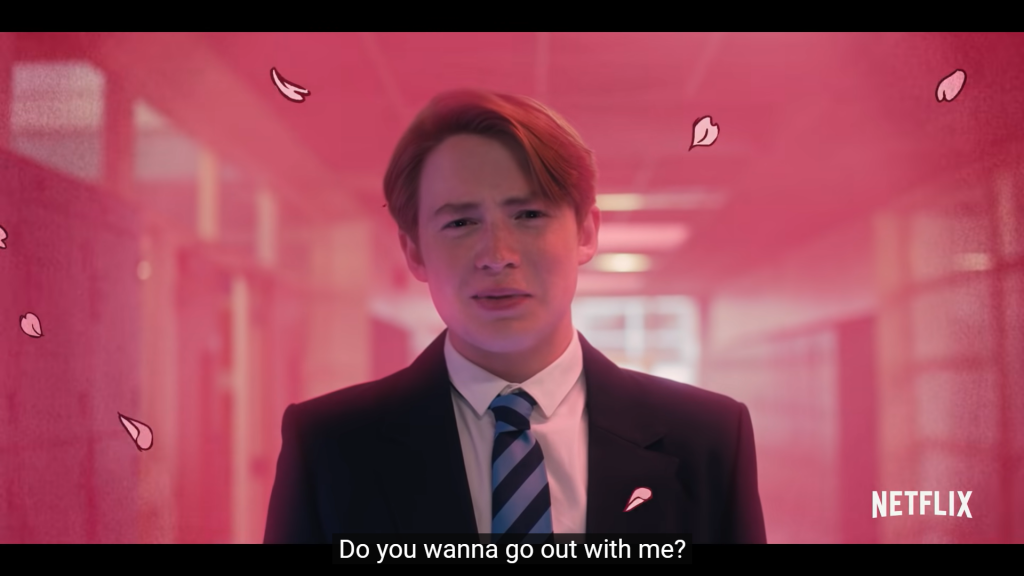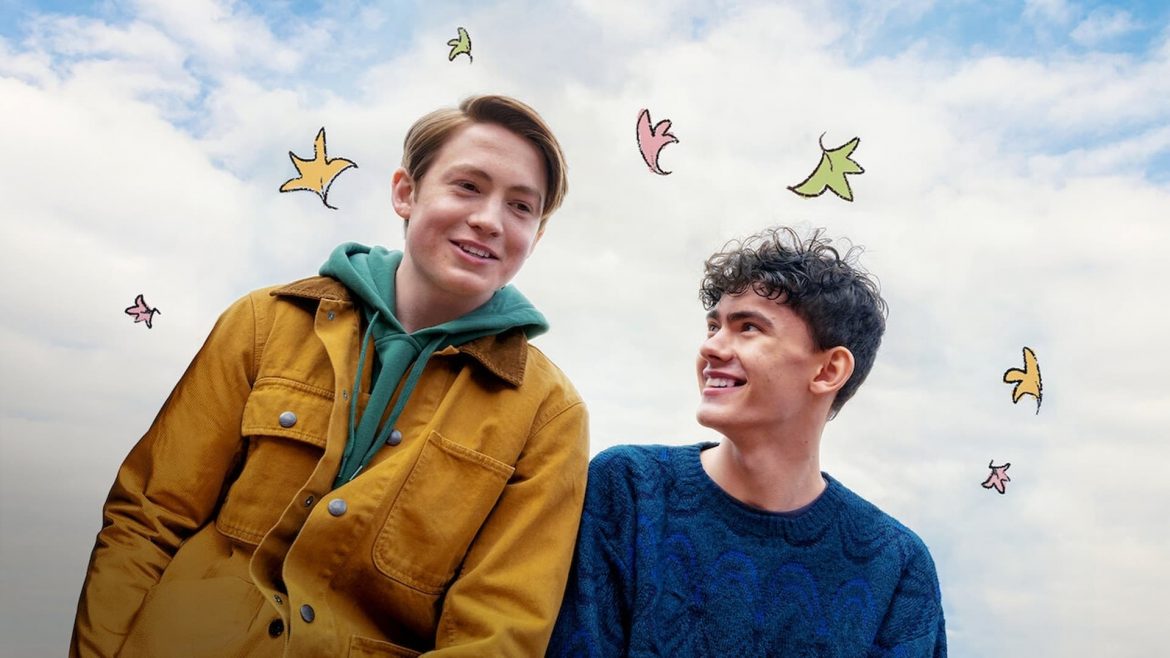It’s almost impossible to get on Twitter right now without coming across a tweet about Heartstopper, the latest TV series offered by Netflix. Since it dropped on the streaming site last April 22, the show has been receiving rave reviews and a Euphoria-like craze online, complete with memes and fancams, and I can totally understand why.
Based on Alice Oseman’s graphic novel series of the same name, Heartstopper is a charming tale about an openly gay high schooler Charlie Spring (played by Joe Locke), who falls in love with star rugby player Nick Nelson (played by Kit Connor) after discovering that they’ll be deskmates for the rest of the school year. Set in same-sex schools Truham and Higgs, the show navigates how queer relationships and identities take shape amidst the politics of heteronormative institutions – and it pays off remarkably.
Euros Lyn’s nuanced direction, paired with Sofie Alonzi’s crafty editing, sets the show’s radiant tone. Pastel-colored animations such as fluttering hearts and sparks act as a motif, especially in moments of thrill. Split-screens are often used as a transitional device. Meanwhile, on-screen messaging, seeing characters fret over responses as they write and rewrite DMs, is used to reflect the anxiety unique to the age of adolescence and the form of communication prevalent in our tech-addled world. These artistic choices lend the show its rich visual language, so it’s no surprise to consume the eight episodes in one go.
But the appeal of Heartstopper rests on the chemistry of Locke and Connor, and Lyn knows how to harness their talents without leaving the other actors behind, aware of the fact that individual character arcs are just as important as the lead characters’ journeys. Like most coming-of-age stories, naiveté and curiosity are still existent in Heartstopper, so change orbits around each character. Charlie struggles with self-esteem after being outed and bullied at school; Nick comes to terms with his sexuality; Elle Argent (played by Yasmin Finney) finds herself in a new environment as she moves to all-girls school Higgs following her coming out as a transgender; Tao Xu (played by William Gao) confronts his fear of being alone and his circle’s newfound friendships; Ben Hope (played by Sebastian Croft) refuses to face his internalized homophobia, and instead projects it onto Charlie; Tara Jones (played by Corinna Brown) and Darcy Olsson (played by Kizzy Edgell) come out as a lesbian couple and begin to grapple with the dramatic reaction that later ensues.
The casting choice, mainly made up of new faces, save for Olivia Colman’s surprising presence playing Nick’s mother, Sarah Nelson, also elevates the show’s believability. How nice it is to witness actual teenagers and queer actors portray people of their age with such emotionality and elation unique to this period of our lives. Casting teenagers for teenager roles seems to be an uptick for Netflix content following Young Royals, thus steering away from the likes of Riverdale and Elite.

Simply put, Heartstopper finds its footing effortlessly, sans the need to impress. It’s also easy to relate to. Nick googling things up about his sexuality and taking the ultimate gay quiz, for instance, hits too close to home. And who hasn’t shed tears when Nick finally comes out to his mother – a sweeping moment that Colman nails with grace and empathy? It’s such a moving scene that, as a non-binary person, I cannot help but wish for the same moment of acceptance from my family.
Comparisons are, of course, hard to ignore. But Heartstopper is a welcome departure from the shows of its genre. It doesn’t share the histrionics and excessive nudity of Euphoria and Sex Education, and certainly not the meandering and lackluster narrative of Elite’s latest season. The show offers a wholesome take on coming-of-age romances with sharp verisimilitude, while simultaneously crafting a larger commentary on how homophobia, bullying, and queer identities manifest in a heteronormative environment. Heartstopper is proof that it is possible to have a family-friendly show that remains hopeful, but not at the expense of the issues it tries to depict.
To say that Heartstopper is another coming out story and to dismiss it as just that, driven by the argument that coming out should be normal and hence not be portrayed in the media anymore, is a valid sentiment but faulty to a degree. The stigma against the LGBTQIA+ community has always been there so much so that being queer remains a criminal offense in many countries. In the Philippines, the SOGIE equality bill has yet to be passed.
So given the zeitgeist, we still need shows of this kind to start conversations about the plight of the LGBTQIA+ community. How can we foster a normal and safe environment that welcomes discourses around sexuality and queer identities if we reject attempts at such normalization? How often do we see a show that triumphs our queer folks and not sideline or, worst, kill them instead?


